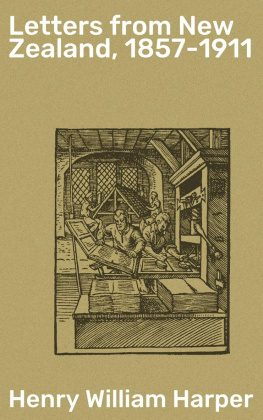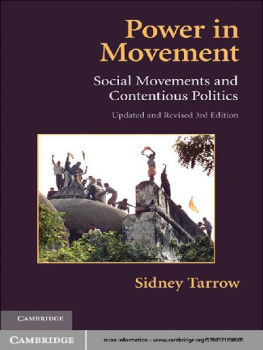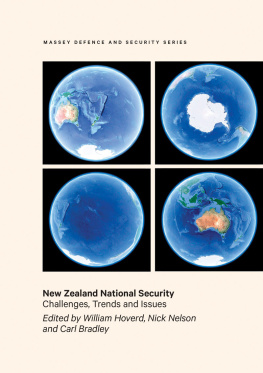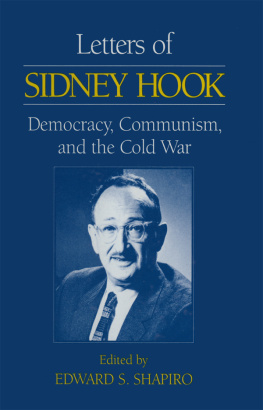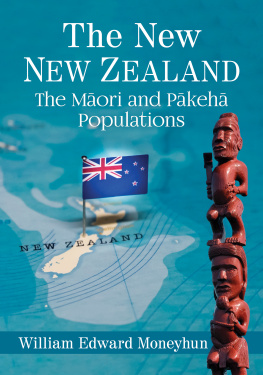INTRODUCTION.
Table of Contents
The Outlines of the Women's Franchise Movement in New Zealand were not intended for publication in a permanent form. They were written for and published in the New Zealand White Ribbon during the years 19012. Repeated requests to allow them to be republished in book form have been hitherto ignored because it seemed to be unnecessary.
Recently my attention has been called to a number of erroneous statements concerning the Suffrage Movement in this Colony which have been given publicity in various magazines and books. Some of these statements have been made by writers whose information has obviously been obtained second-hand and from unreliable sources. But others have been made by men who should have known better. Notable among these is Mr. W. P. Reeves , the present High Commissioner for New Zealand in London.
During the years of the most strenuous agitation in favour of the franchise, he was engaged in the public life of the Colony, and at the time when the long fight was brought to a close he held office as a member of the Cabinet. It seems incredible that he could be ignorant of the incessant and long continued efforts made by women in almost every part of the Colony to gain public sympathy for this great reform, and to bring pressure to bear on members of Parliament.
Yet in his book, "State Experiments in Australia and New Zealand," Mr. Reeves says:
"So one fine morning of September, 1893, the women of New Zealand woke up and found themselves enfranchised. The privilege was theirs, given freely and spontaneously in the easiest and most unexpected manner in the world by male politicians No franchise leagues had fought the fight year after year. "
How utterly at variance with the real facts these statements are the readers of this book will be able to judge.
I may say that when I consented to republish these "Outlines," I wrote Sir John Hall and Mr. Alfred Saunders , forwarding to each a set of proofs, and asking them to be good enough to read them and point out any errors that came under their notice. Mr. Saunders was then confined to his bed as the result of a severe operation, but at his invitation I visited him and he expressed his satisfaction at the general accuracy of the account.
Sir John Hall, with his characteristic courtesy, wrote me, placing at my service several volumes of records of the Franchise Movement in the Colony which he had collected, and had bound in a compact form. On returning the set of proofs he wrote me the following letter which I take the liberty of publishing:
" My Dear Sir ,
"The perusal of the proofs of the Outlines of the Women's Franchise Movement in New Zealand has been a very pleasant task for me. The manner in which the Parliamentary franchise was obtained for women in New Zealand deserved to be put on record, and I bear willing testimony to the accuracy and the fairness with which this has been done by you.
"I am especially glad to find that your narrative does justice to the first pioneer in the movement, Dr. Wallis; also to Mr. Alfred Saunders, its steadfast advocate; and especially to Mrs. Sheppard, Superintendent of the Franchise Department of the Women's Christian Temperance Union. To no one was the success which crowned our long struggle more attributable than to Mrs. Sheppard and her colleagues for the judgment and the tenacity of purpose with which they worked to influence public and Parliamentary opinion. But for their perseverance, as well as their moderation, the opposition which was offered to the enfranchisement of women would have been very difficult to overcome."
"Yours faithfully,
" John Hall. "
One word more. I have, and I think rightly, termed Mrs. Miiller the pioneer worker in the enfranchisement of women in New Zealand. Yet as early as 1843 Mr. Alfred Saunders and Sir William Fox advocated Woman Suffrage in the Colony. This fact has only just been brought to my knowledge, and I am glad to be able to do justice to two of the truest patriots that New Zealand has possessed.
W. SIDNEY SMITH.
"Westcote," Upper Riccarton,
Christchurch, N.Z.
August 3rd. 1905.
CHAPTER I
Table of Contents
T O Mrs. Mary Mller belongs the honour of being the pioneer worker for the enfranchisement of women in New Zealand. Mrs. Mller, an English lady, left England in the ship Pekin in 1849, and landed at Nelson, N. Z., in January, 1850. In 1852 she married the late Dr. Mller, who became Provincial Secretary of Nelson when the provinces were constituted, Mr. Stafford (afterwards Sir Edward) being the Superintendent.
In 1857 Dr. Mller was appointed Resident Magistrate for the district of Wairau. This district was then part of the province of Nelson, but was afterwards formed into the province of Marlborough. Had Mr. Gilbert, the witty librettist, known more of early colonial life, he would have been aware of numbers of able and many-sided public officers whose varied duties quite outrivalled those of the famous Pooh Bah. Dr. Mller held the position of Resident Magistrate for 22 years, and during the early part of that period set up Customs, Postal, and indeed every other department of Government, filling, at one time, no fewer than thirteen offices himself.
For some years before leaving England the injustice of the law towards women was impressed on the mind of Mrs. Mller. It was therefore hardly to be wondered at that, living in New Zealand in the epoch-making fifties, and associating with such nation builders as Sir William Fox, Alfred Saunders, Sir David Monro, Sir E. W. Stafford, and Alfred Domett, Mrs. Mller should feel that in this new land women, as well as men, should be free.
Quietly and unobtrusively, in frequent conversation with those early law makers, Mrs. Mller suggested the equity of the enfranchisement of women. But while for the greater part they listened with courteous apathy, there were someSir David Monro among themwho were heartily shocked at so scandalous a suggestion. Dr. Mller, too, was strongly opposed to woman suffrage. A good and learned man, an affectionate husband, he was rigid in his views as to the impropriety of women manifesting an interest in politics. It is probable, too, that his position as an administrator of the law strengthened his disapproval of his wife taking any part in an agitation for its reform.
Whether this was so or not, Mrs. Mller was confronted with a choice between domestic concord and the advocacy of views that she felt to be both just and urgent. In this painful dilemma Mr. Charles Elliott, a relative by marriage, came to the rescue.
Mr. Elliot was not only a member of Parliament but, more important still, was the proprietor of the Nelson Examiner which at that time was probably the most influential newspaper in the colony. He proved himself to be a real friend in need. Carefully preserving Mrs. Mller's anonymity, he received and forwarded her correspondence, placed the columns of his own paper at her disposal, and procured publication for her articles in papers in other parts of the colony. Certainly among the men who have rendered unacknowledged service to the cause of woman in New Zealand the name of Mr. Charles Elliott stands high.




